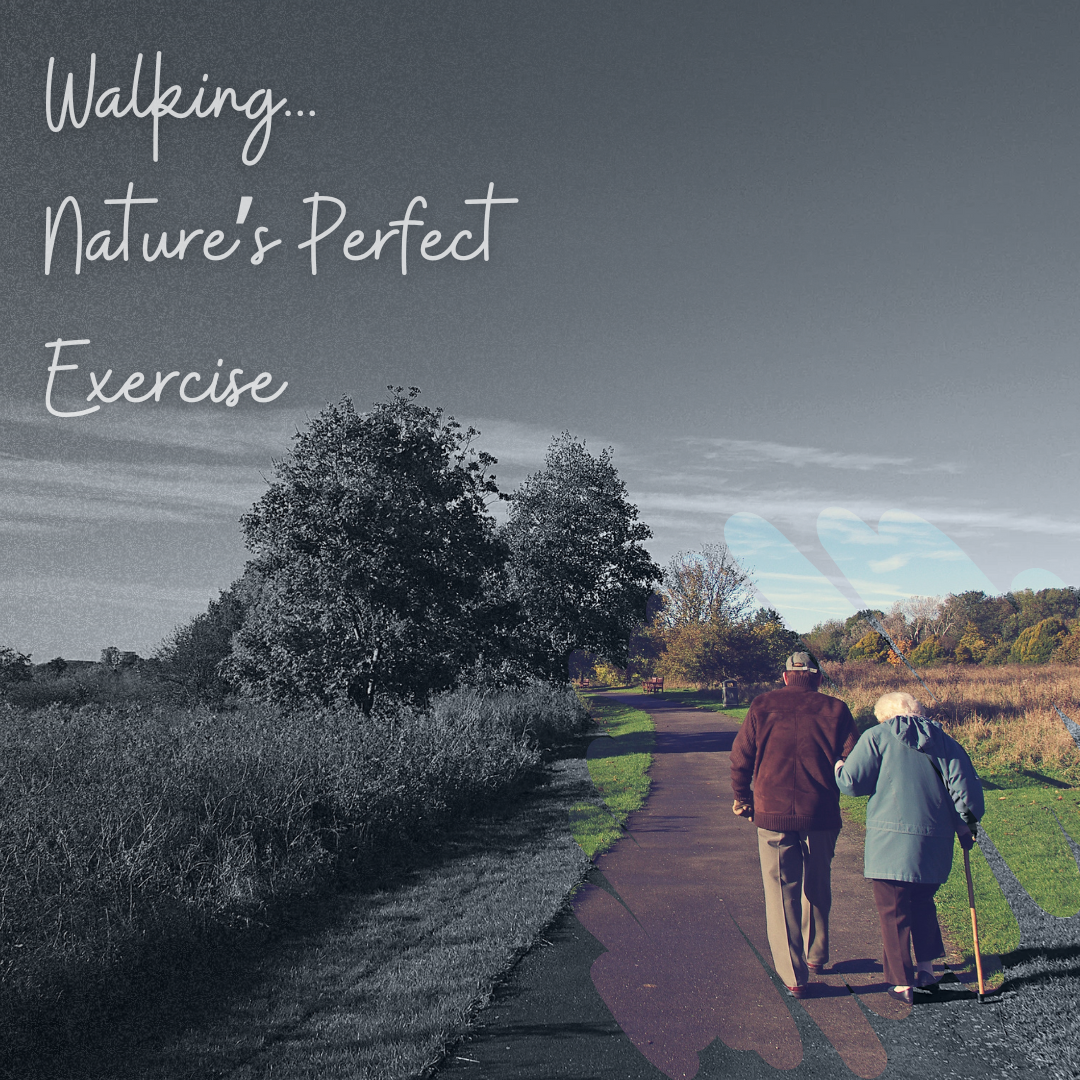The Power of Walking: How Regular Strolls Improve Your Health
Nature's Perfect Exercise

The Power of Walking: How Regular Strolls Improve Your Health
In the quest for better health, we often seek out complex exercise routines, trendy diets, and cutting-edge wellness gadgets. Yet, amidst all the noise, one of the simplest and most accessible forms of physical activity often gets overlooked: walking. Yes, that's right—good old-fashioned walking has the power to transform your health in remarkable ways. In this blog post, we'll explore the numerous benefits of walking and why incorporating regular strolls into your daily routine can lead to significant improvements in both physical and mental well-being.
Walking: Nature's Perfect Exercise
Walking is a fundamental human activity—one that our bodies are naturally designed to do. Unlike more strenuous forms of exercise, such as running or weightlifting, walking is low- impact and easy on the joints, making it suitable for people of all ages and fitness levels. Whether you're taking a leisurely stroll around the neighborhood or briskly walking on a treadmill, every step you take contributes to better health.
Physical Benefits of Walking
• Heart Health: Walking is an excellent cardiovascular exercise that gets your heart pumping and improves circulation. Regular walking can lower blood pressure, reduce cholesterol levels, and decrease the risk of heart disease and stroke.
• Weight Management: Incorporating brisk walking into your daily routine can help burn calories and contribute to weight loss or weight maintenance. Plus, it boosts metabolism, making it easier to manage body weight over time.
• Improved Mobility: Walking strengthens muscles and improves joint flexibility, which can enhance balance and coordination, reducing the risk of falls and injuries, especially as we age.
• Stronger Bones: Weight-bearing activities like walking help maintain bone density and reduce the risk of osteoporosis, a condition characterized by fragile bones.
• Enhanced Immunity: Regular physical activity, including walking, supports a healthy immune system, reducing the likelihood of illness and infection.
Mental and Emotional Benefits of Walking
• Stress Reduction: Walking outdoors in nature has been shown to reduce stress levels and improve mood. The combination of fresh air, sunlight, and physical activity triggers the release of endorphins, the body's natural mood boosters.
• Increased Energy: Rather than draining your energy, walking can actually invigorate you. A brisk walk can increase circulation and oxygen flow to the brain, leaving you feeling more alert and focused.
• Better Sleep: Regular exercise, including walking, can improve sleep quality and duration, helping you fall asleep faster and enjoy more restful sleep throughout the night.
• Enhanced Creativity: Many people find that walking stimulates creativity and problem- solving abilities. Taking a walk can clear the mind, allowing for fresh ideas and insights to emerge.
• Reduced Anxiety and Depression: Studies have shown that walking can be as effective as medication in reducing symptoms of anxiety and depression. The rhythmic motion of walking, coupled with the release of endorphins, promotes a sense of calm and well- being.
Tips for Incorporating More Walking into Your Routine
• Start Small: If you're new to walking, begin with short, manageable walks and gradually increase the duration and intensity over time.
• Find Joy in Movement: Choose scenic routes or listen to music, podcasts, or audiobooks to make walking more enjoyable.
• Set Goals: Whether it's a daily step count or a weekly walking distance, setting specific goals can help keep you motivated and accountable.
• Make It Social: Invite friends, family members, or pets to join you for a walk. Walking with others can make the experience more fun and sociable.
• Be Consistent: Aim for at least 30 minutes of moderate-intensity walking most days of the week to reap the full benefits of this simple yet powerful exercise.
Conclusion
In a world filled with high-tech fitness gadgets and complex workout routines, it's easy to overlook the humble act of walking. Yet, as we've seen, regular walking offers a multitude of benefits for both body and mind. So lace up your shoes, step outside, and embrace the transformative power of walking. Your health will thank you for it.
Walk on, and enjoy the journey to better health!
References:
• https://www.ncbi.nlm.nih.gov/p
• https://www.ahajournals.org/do
• https://pubmed.ncbi.nlm.nih.go
• https://www.arthritis.org/heal
of-walking
• https://pubmed.ncbi.nlm.nih.go
• https://pubmed.ncbi.nlm.nih.go
• https://pubmed.ncbi.nlm.nih.go
• https://pubmed.ncbi.nlm.nih.go
• https://www.frontiersin.org/ar
• https://www.sciencedirect.com/
• https://pubmed.ncbi.nlm.nih.go
• https://psycnet.apa.org/record
• https://jamanetwork.com/journa